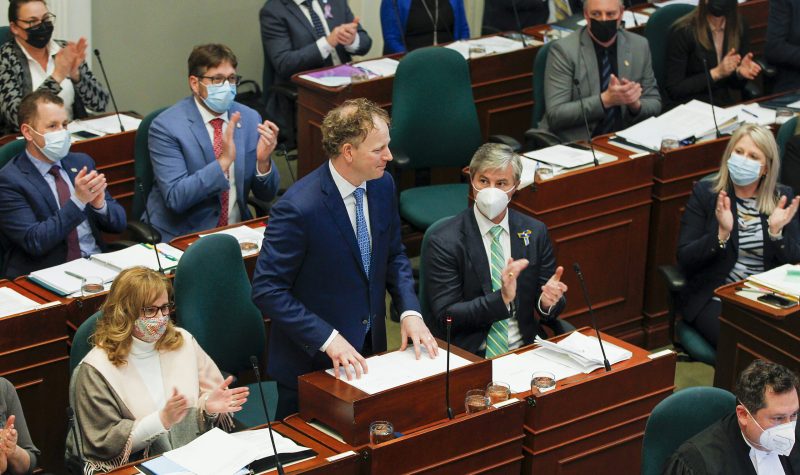An additional $413 million in health care spending will help push the provincial deficit to $506 million this year.
The first full budget released by the PCs since winning government last August focused on delivering on some of the promises made during that campaign.
The top priority identified in Tuesday’s budget is addressing the province’s ailing healthcare system.
Nova Scotia will spend $5.7 billion on health care this year, which accounts for 43 percent of the total $13.2 billion budget
Some of that money will make virtual care available to people waiting for a family doctor, extend operating room times to help clear a backlog of surgeries, create 200 new nursing seats at NSCC, and help recruits new medical professionals to the province.
Nova Scotia is also spending to improve long-term care.
Government has allocated $66 million for continuing care assistants to ensure they are the highest paid in Atlantic Canada.
Money is also being spent to recruit train and keep CCAs and keep seniors in their own homes longer.
A lack of housing has been identified as a major issue in Nova Scotia.
Government is attempting to keep housing stock in the hands of Nova Scotians with the addition of a five percent deed transfer tax for non-residents and a property tax of $2 per $100 of assessed value on buildings with three or less units owned by non-residents.
Finance Minister Allan MacMaster says the new measures accomplish a couple of goals.
“It will be a significant revenue generator and it’s going to take us as a couple of years to build a proper database to determine who actually is non-resident. We certainly have sources of information, but a database will be built over a couple of years,” said MacMaster. “For some it may result in properties becoming available to Nova Scotians who are struggling to find them right now.”
MacMaster says government is investing in Nova Scotia now but don’t expect to see a pattern of unchecked spending.
“This first budget, our focus is on fixing healthcare and our focus is investment in a province that’s growing,” said MacMaster. “In the future, I think what I would say to people who might be concerned about the degree of spending in this budget is that we are showing a track back towards reduced deficits going forward.”
E-mail: edhalversonnews@gmail.com
Twitter: @edwardhalverson
To listen to the broadcast of this story, press play below.


